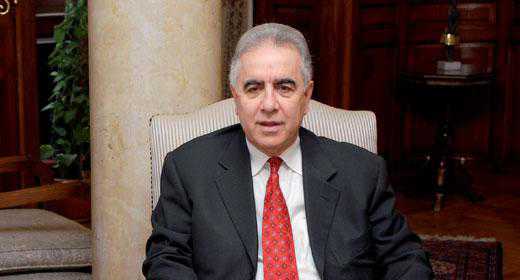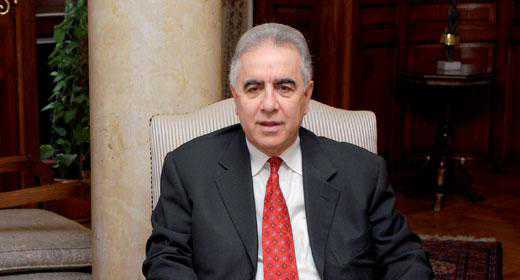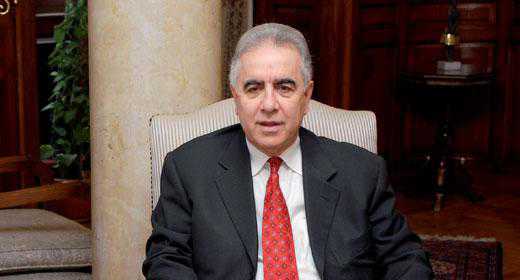
During my recent trip to Armenia, journalists repeatedly asked which US presidential candidate I supported in the November 6 elections. My answer was clear and unequivocal: I supported neither Pres. Obama nor Governor Romney. Upon my return to the US, I was pleased to learn that the Armenian National Committee of America had made the same decision by not endorsing either candidate.
This was not a difficult decision. Both candidates have been disappointing. The President has not kept his word on many Armenian and non-Armenian issues, while his rival has not shown the slightest interest in the Armenian-American community and its issues.
Here is Pres. Obama’s long list of unkept promises on Armenian issues:
1. During the 2008 presidential campaign, he repeatedly pledged to acknowledge the Armenian Genocide, and broke his promise after the election.
2. Furthermore, the Obama administration opposed the adoption of a congressional resolution on the Armenian Genocide.
3. Pres. Obama significantly reduced the amount of foreign aid to Armenia and Artsakh (Karabagh). Moreover, his administration did not spend the full amount of aid Congress had allocated to Artsakh.
4. He pressured Armenia to sign the infamous “Protocols” with Turkey in 2009.
5. He did not press Turkey to lift its blockade of Armenia.
6. He remained silent in the face of repeated saber-rattling by Azerbaijan’s President against Armenia and Artsakh, and ignored his campaign pledge to support Artsakh’s self-determination.
7. In late December 2010, circumventing the “hold” placed by U.S. Senators, Pres. Obama unilaterally appointed Matt Bryza as Ambassador to Azerbaijan. Bryza’s candidacy had been overwhelmingly opposed by the Armenian-American community.
8. Breaking another promise, Pres. Obama failed to promote trade with Armenia.
9. He and Secretary of State Hillary Clinton did not respond to repeated requests to meet with Armenian-American community leaders to address their concerns.
Armenian-Americans do not need to beg Pres. Obama to acknowledge the Armenian Genocide, since Pres. Ronald Reagan had issued such a statement in his Presidential Proclamation of April 22, 1981. By not acknowledging the Armenian Genocide, Pres. Obama simply undermined his own credibility. Most Armenian-Americans trusted him in 2008. They no longer trust him in 2012! As the popular saying goes, “fool me once, shame on you; fool me twice, shame on me!”
Those who think that such an assessment is too harsh and too narrowly focused on Armenian issues should be advised that Pres. Obama has not kept 86 other promises on national and international issues, according to politifact.com.
Governor Romney has not fared any better with Armenian-Americans. He has avoided any contacts with the community, making no attempt to seek their support and votes. The concern is that if he shows such callous disregard when he desperately needs every single vote to get elected, he will most definitely not pay any attention to Armenians and their issues after the election!
Clearly, it is unwise for both presidential candidates not to court the support of Armenian-American voters in crucial swing states, at a time when the race is so tight that a handful of votes could mean the difference between victory and defeat. However, it is still not too late for the two candidates to sit down with the leadership of the Armenian-American community and address their concerns. This will not be an easy conversation. As it would be practically impossible to trust Pres. Obama’s new promises, his only credible response would be to take a positive step on an important Armenian issue before Nov. 6! Gov. Romney, on the other hand, has more of an uphill battle. Being a candidate, he can only make promises that would not be taken too seriously at this late hour.
To avoid being fooled again by false promises, the Armenian-American community needs to adopt a new election strategy. Only those candidates who have fulfilled their campaign promises during their first term in office should be supported for reelection. Promises made by new candidates or those with no solid record of accomplishments on Armenian issues should be simply ignored.
Finally, not voting for either presidential candidate does not mean sitting out the elections. One third of the US Senators are up for reelection as well as all 435 House Members. Armenian-American voters should reward candidates supportive of their issues by voting them back into office, and should punish their opponents by voting them out of office! Please consult ANCA’s ratings of all congressional candidates on www.anca.org.






